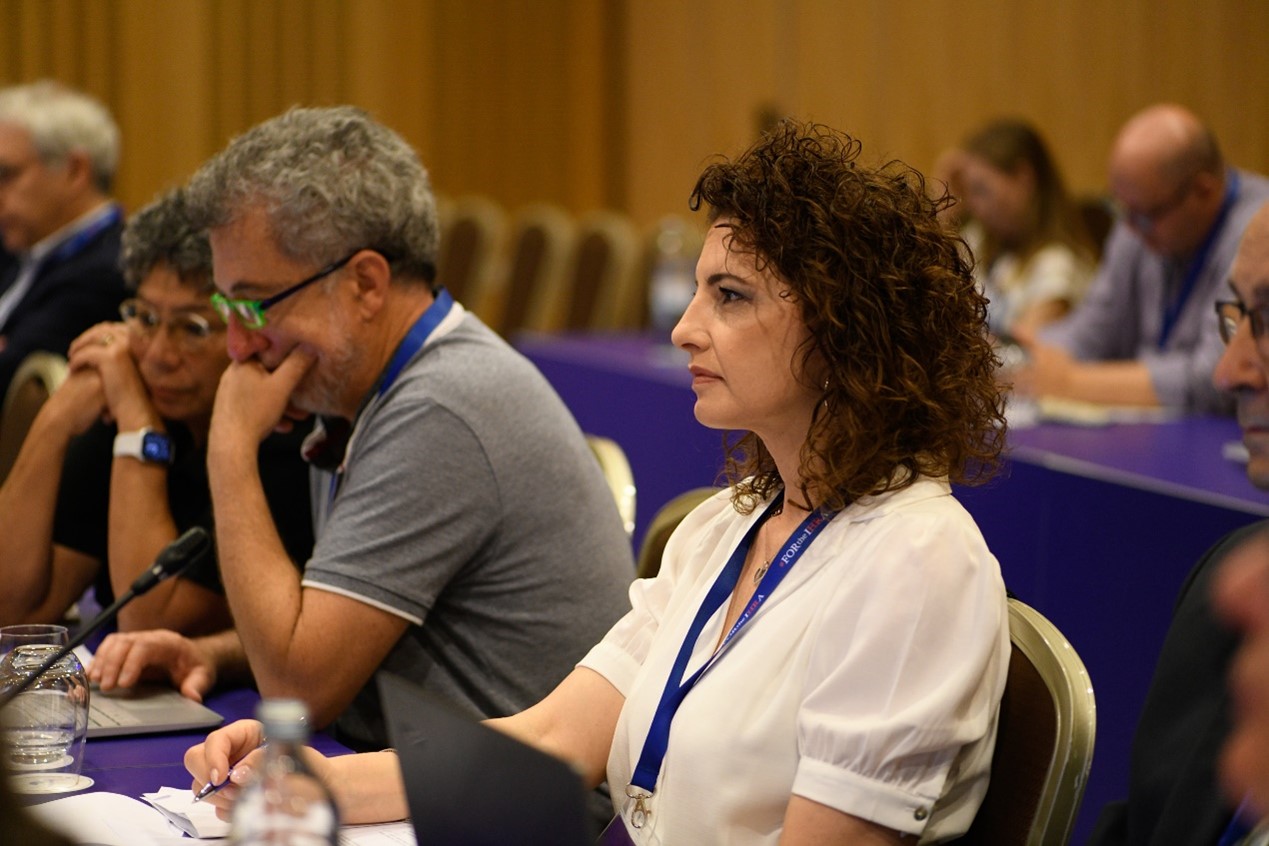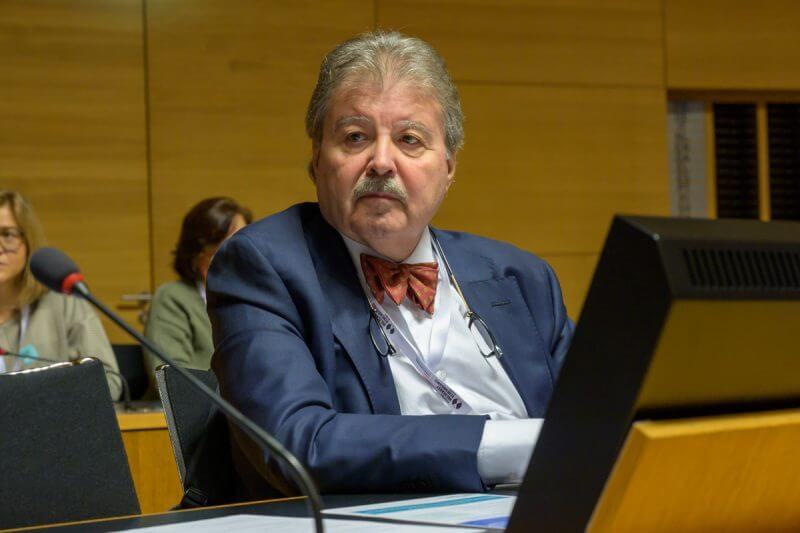
IHRA off the record: What happens at an IHRA Plenary coffee break?
Between Working Group, Committee, and IHRA Project meetings as well as the Plenary Session itself, delegates mill around coffee and cake during well-deserved breaks. But what happens when IHRA delegates get together to talk off the record? We joined a coffee break chat at the IHRA Dubrovnik Plenary to find out.
Romanian delegate, Alina Bricman leaves the conference room that hosts the Committee on Antisemitism and Holocaust Denial and describes her experience of Plenary meetings as a “tremendous inspiration where IHRA members hear from interesting innovative projects happening around the world – which is particularly helpful in a moment where a lot of countries are developing their national strategies to combat antisemitism.” A self-professed data geek, Alina enjoyed the presentations on statistical surveys surrounding issues of antisemitism. The simple fact that these surveys exist gives her hope in a world with a significant lack of data on antisemitism.
“It’s extremely valuable for experts to be able to present their work and receive feedback and see ideas on how to expand potential projects,” says Alina. Steve Cooke, Deputy Chair of the IHRA Safeguarding Sites Project and Australian delegate, joins us by the cake stand. He explains, it was conversations at the 2018 Plenary Meetings that inspired experts to focus more closely on threats facing Holocaust-related sites. These conversations resulted in the shared realization that the IHRA’s work at the time was disconnected from heritage practice more generally, and inspired the IHRA Safeguarding Sites Project, which is now in its final stages of drafting a charter for best practice to safeguard Holocaust-related sites. This conversation, Steve says, would not have been possible without the Plenary, where experts were able to forge connections. Steve highlights that these conversations are sometimes serendipitous – a conversation in a coffee break can lead to new ideas, new projects and help to strengthen the IHRA’s goals across the world.
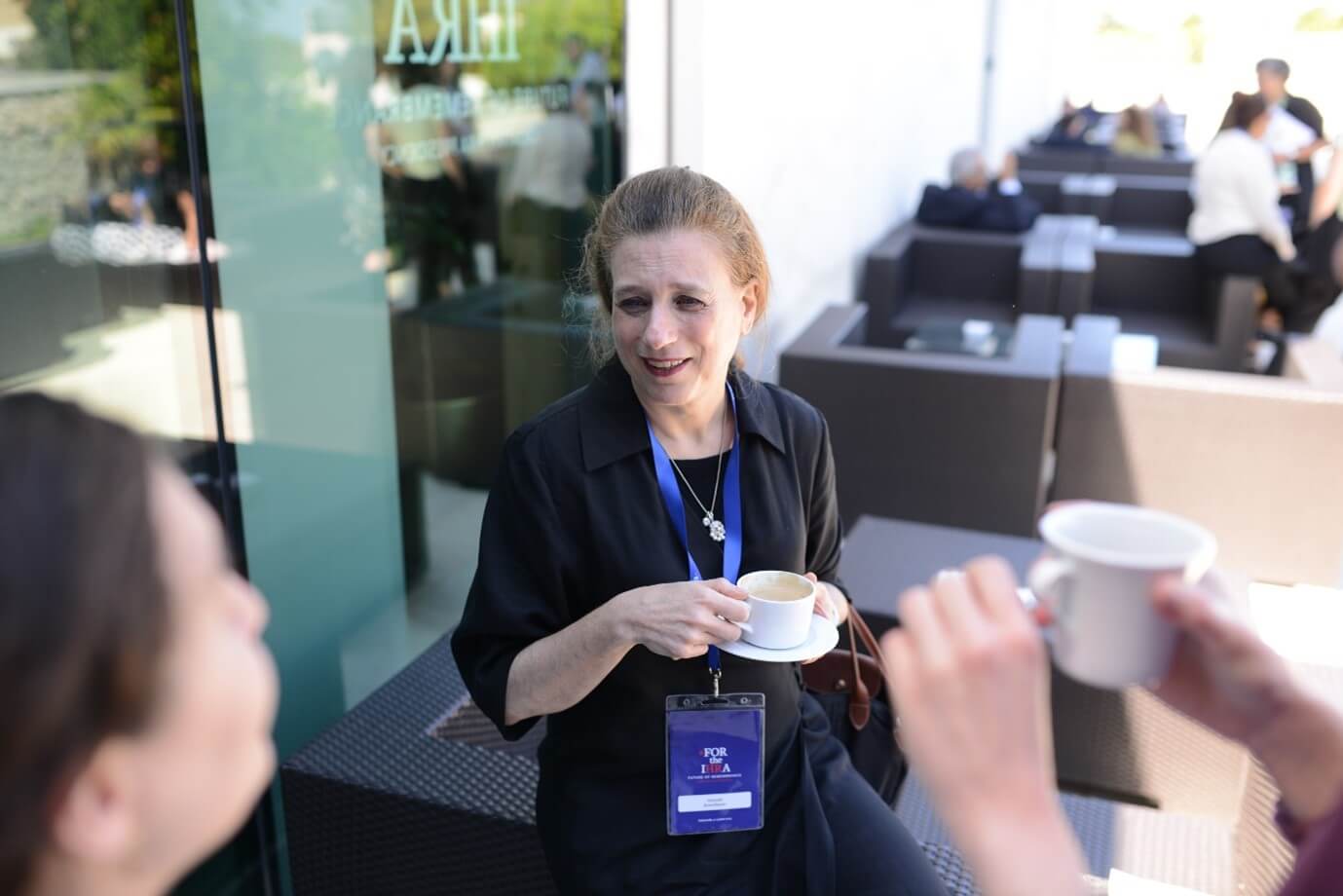
Alina Bricman says she’s looking to use one of the coffee breaks to meet with the Documentation Center of Austrian Resistance with whom her organization B’nai B’rith International is partnering but has never had the chance to meet in person. “The Plenary is such an enormous inventory of organizations and experts providing interesting angles to look at the issues we’re all working on in our little silos.” Fanny Steckel, Project Officer for the Global Task Force Against Holocaust Distortion, standing nearby with a coffee, overhears and agrees, saying she loves that moment where you finally meet someone with whom you’ve only been in contact via email exchange, sometimes for years, it makes future collaboration all the more meaningful.
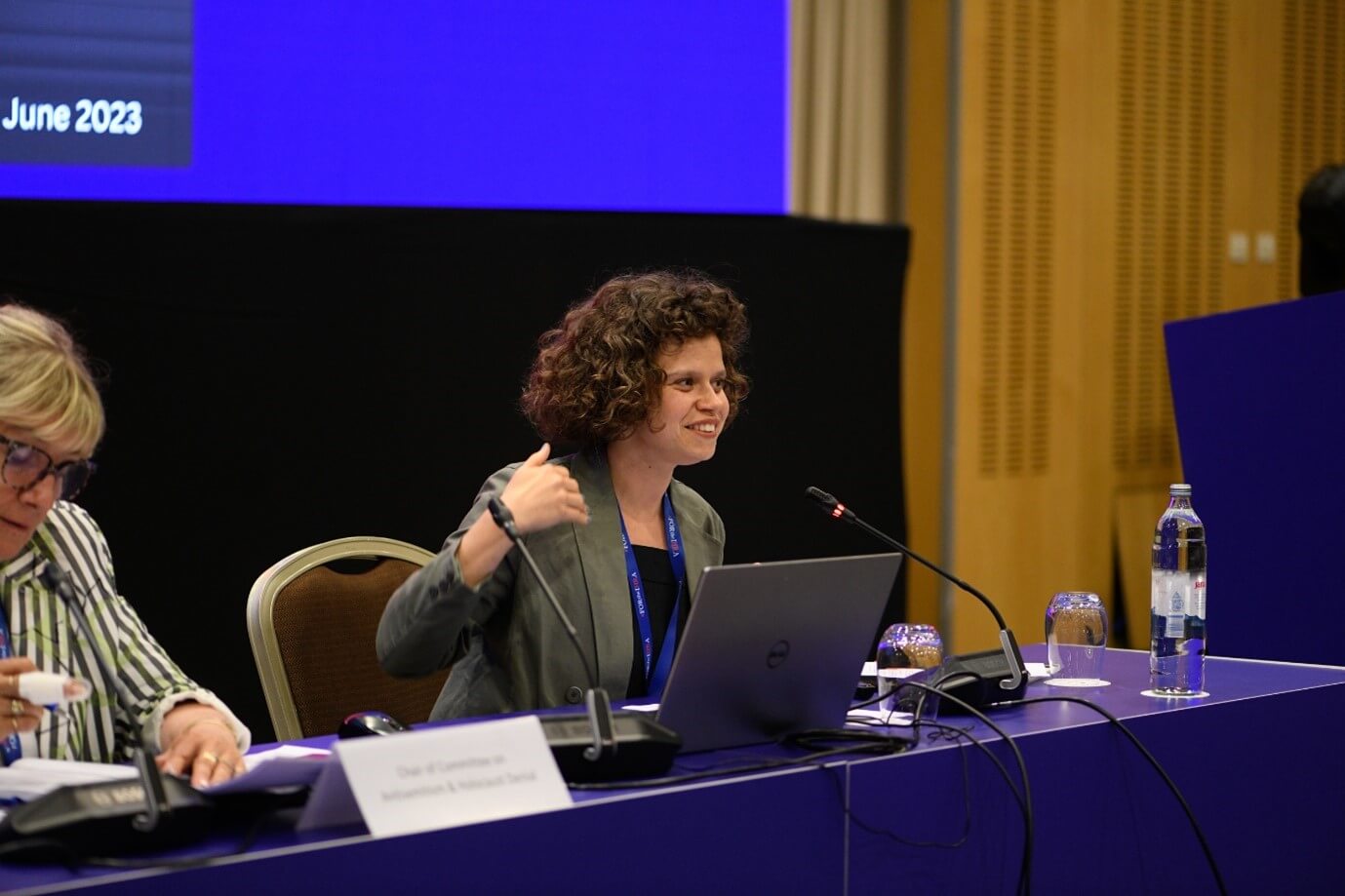
As Alina greets Fanny, she says she is glad to see more focus being placed on Holocaust distortion at the Plenaries, something she feels is “very action-oriented,” helping the IHRA live up to its mission while addressing current and future challenges. “That’s true,” says Fanny. “Distortion is increasingly on the radar of IHRA Member Countries, and the Plenary provides a space where the Task Force can learn more about Member Countries’ plans to combat distortion and gives them the opportunity to listen in on expert exchanges on the issues.” Fanny explains that the Plenary gives the Task Force the chance to promote the #ProtectTheFacts assets and gives Member Countries the opportunity to approach the Task Force regarding translating the assets, for example, something she describes as “key to localization efforts.” The Plenary Meetings during the Swedish Presidency were certainly key in deciding to translate #ProtectTheFacts assets into Ukrainian and Russian following Russia’s aggression against Ukraine.
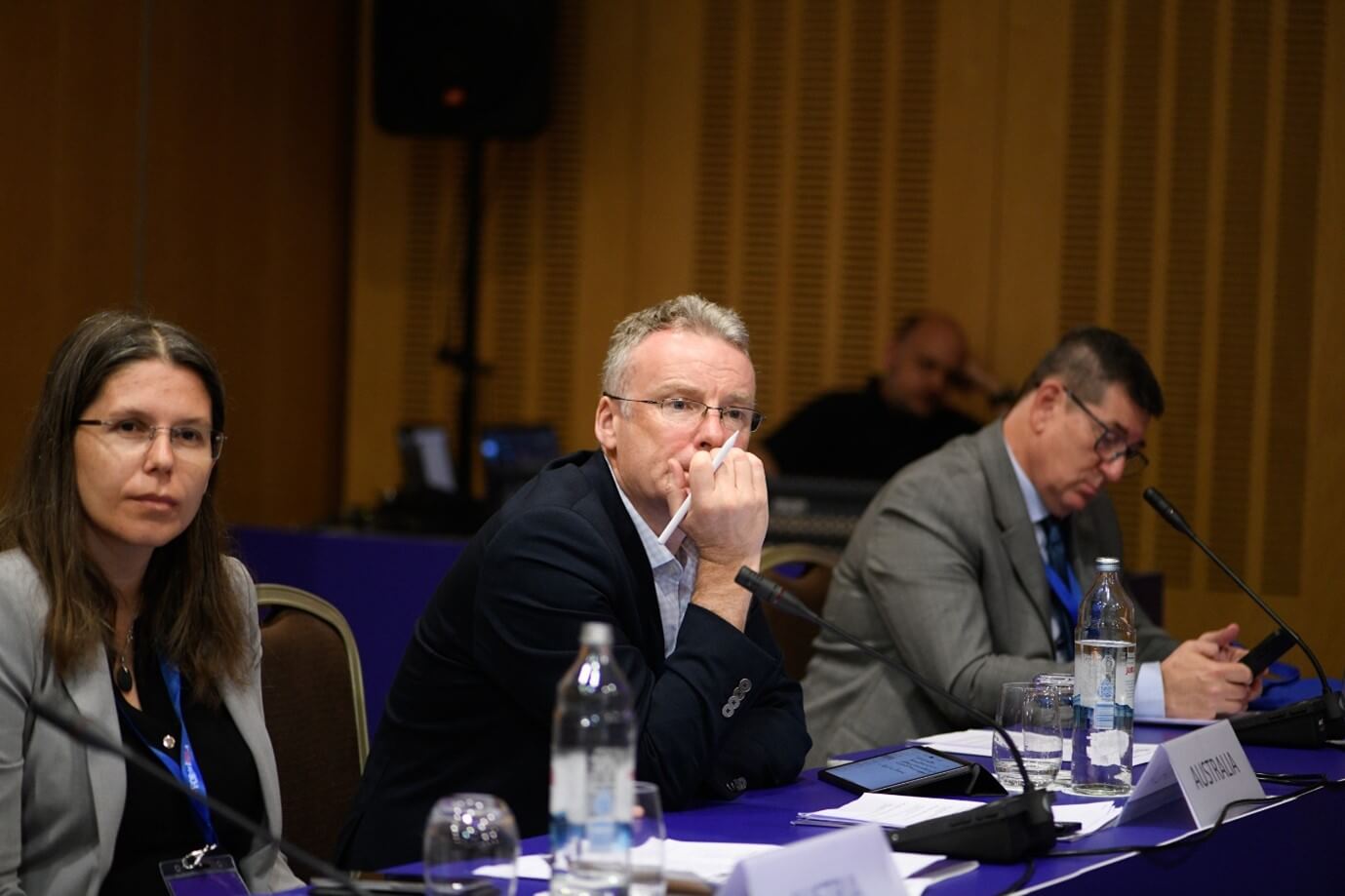
Fanny shares that one of her favorite parts of the Plenary is attending the IHRA Permanent International Partner meetings because the Task Force works with so many of them. The meeting makes it possible to learn more about what they’re planning regarding combating Holocaust distortion. Fanny explains that sitting face to face also allows the partners to have conversations about sensitive topics that may not be as easy or natural in an online setting. This rings true with what Steve says about conversations at the Plenary, which “cross boundaries – not just national boundaries but disciplinary boundaries as well. It allows for creative conversations about difficult topics. Sometimes that means there are tensions in discussions – but tension is good, it means we can move the conversation forward.”
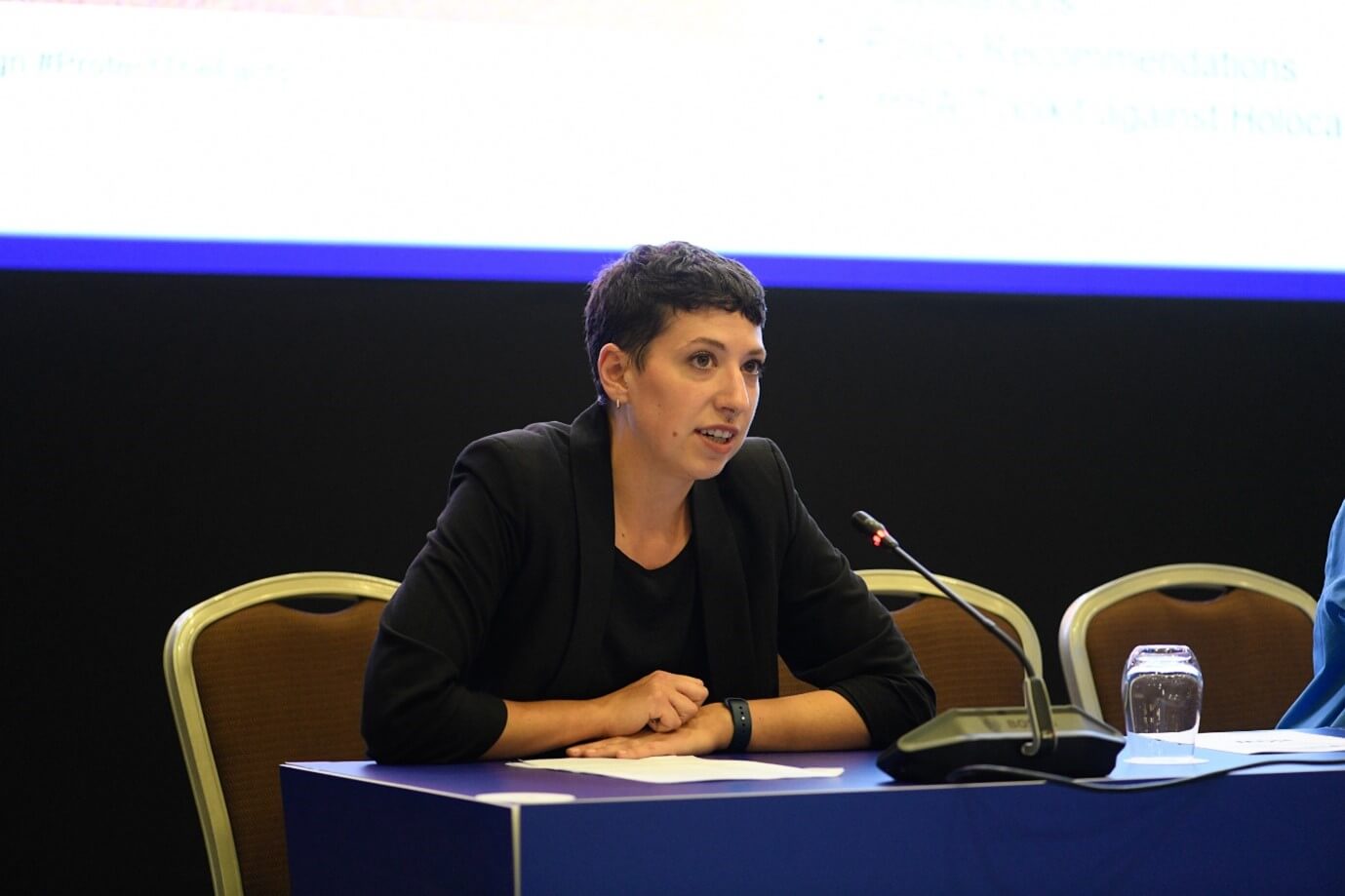
“And not just disciplinary boundaries,” Alina chimes in, “there’s a generational aspect to it, too.” As a younger delegate, Alina is inspired by her colleagues who are a similar age and are often stepping forward to take on important roles or give feedback in Committees and Working Groups – this generational shift is a sure sign that Holocaust remembrance is being taken seriously by younger generations. It also means that exchanges at Plenaries not only transcend borders – they also transcend generations, which brings added value to Plenary discussions.
In every room at the Plenary meetings, there is a chorus of voices, sharing lessons they have learned and asking sometimes difficult questions. The cake stand at the coffee break is no exception. This chorus carries Plenary meetings forward, helping each IHRA member concentrate on the task at hand. It is four days of intense, focus-driven work that helps underline the commitments of IHRA Member Countries and inspires new work to strengthen Holocaust remembrance, not just in conference rooms in Dubrovnik but across borders, generations, disciplines, and languages. For Alina, Fanny, and Steve, taking ideas back to their respective countries, organizations, and projects creates a global chorus ensuring that safeguarding the record and combating Holocaust distortion will ring out well into the future.
Sign up to our newsletter to
receive the latest updates
By signing up to the IHRA newsletter, you agree to our Privacy Policy

